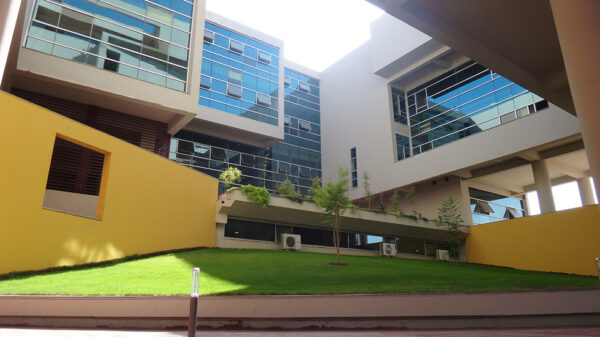
Over the past few years in Pakistan, liberal arts education has grown to be an influential movement in the higher education system. For the most part, Pakistan’s higher education institutions have concentrated on technical and professional training, with liberal arts relegated to the backseat. Now, however, there is a change. Universities all over the country are starting to incorporate liberal arts into the conception of their educational system, admitting its value in developing critical thinking, creativity and interdisciplinary approaches to issues. Among such institutions is Habib University, which is at the head of the pack, as it adopts an ideal liberal arts education style that is revolutionizing the education sector of Pakistan.
Habib University: The First Liberal University in Pakistan
Bearing a campus in Karachi, Habib University is often professed as the best university in Pakistan owing to its conception of the first liberal arts college in the country. The ideologies of the University of Habib have an inclination towards its Yohsin philosophy, which is mainly focused on self-respect, cherishing one’s culture and society, and keeping the intellect busy. Habib University provides its students with balanced education by offering a mega discipline of liberal arts where Humanities and Social Sciences, Natural Sciences, and Engineering are combined together.
What makes Habib unique is the ability to link the global with the grassroots. The flagship degree programs offered at the university, including Communication and Design, Social Development and Policy, Computer Science, etc., enable students to tackle various issues within Pakistan whilst still remaining globally competent.
Due to the interdisciplinary core curriculum which students complete at the university, they have the ability to not only widen their academic scope but also think critically and analytically. Moreover, courses like Hikmah (Wisdom) and Jehan-e-Taza (Fresh World) stimulate students’ interests in the study of different aspects of the world’s philosophy, culture and history. Such programs aim for graduates to be competent in both their academic fields and in society, being capable of tackling and suggesting new ideas to old problems.
The Rising Demand for Liberal Arts in Pakistan
In an ever-changing world, the requirements for the kind of graduates who can function in multidimensional settings have increased. Now, employers are looking for traits like communication, ability to resolve issues and flexibility that are often embedded in the attributes of a liberal arts education. The universities of Pakistan are also gradually moving in this direction and integrating liberal education into their curriculums.
In this regard, institutions such as Lahore University of Management Sciences (LUMS) and Forman Christian College have included liberal arts subjects as part of the degree programs they offer. However, while such initiatives are welcome, the extent and scale of the liberal arts courses offered at Habib University remain unparalleled.
This change in paradigm denotes that there is a growing realization among the heads of the academic institutions that in order to serve the society, there is a need to groom the students in a holistic manner. And by emphasizing liberal arts, universities are preparing students to think critically, engage empathetically, and address complex global challenges.
Liberal Arts as a Catalyst for Societal Change
Liberal education is important in creating change in society as it enables students to rebel against the existing status quo, gives them the capacity to see beyond the obvious, and inspires them to become involved in social causes. In a country such as Pakistan, which suffers from an array of social issues like gender discrimination, poverty, climate change, etc, there is an opportunity for liberal arts graduates to bring about transformation.
Habib University is a prime example of this change through its work in the community and through the various research initiatives that the institution has. Students and Professors work together on issues such as urban development, educational improvement and environmental conservation and these are classic examples of how liberal arts education can change society for the better.
In addition to this, many of Habib’s graduates are known to serve in various fields, including politics, entrepreneurship, and the artistic spectrum of media. The fact that they are capable of looking at challenges from multiple perspectives and offering creative solutions serves as a testament to the importance of a liberal arts education.
FOR MORE INFORMATION CLICK HERE : scuba diving dubai
Challenges and Opportunities
While the integration of liberal arts into Pakistan’s education system is a promising development, it is not without challenges. Such problems emerge primarily because there have been long-held preferences for specialized degrees, and there is also a lack of awareness as to how liberal arts can be beneficial. Furthermore, the financial limitations of most of the institutions make it difficult to emphasize liberal arts.
On the other hand, the opportunities exceed the challenges. As more and more universities join in the footsteps of Habib University, the understanding of liberal arts will be improved over time. The further development of liberal arts education in Pakistan can be ensured through joint efforts of education sector representatives, policymakers and the business community.
The Future of Liberal Arts Education in Pakistan
As the demand for holistic and interdisciplinary education grows, liberal arts will undoubtedly play a central role in shaping the future of Pakistan’s academic landscape. Institutions like Habib University have set a high standard, demonstrating that a liberal arts education is not merely an academic pursuit but a transformative journey that prepares students to navigate the complexities of the modern world.
In conclusion, liberal arts education is redefining the paradigm of higher education in Pakistan, bridging the gap between academia and real-world challenges. Universities that embrace this approach are equipping students with the tools to thrive in diverse professional settings while contributing meaningfully to society. As Habib University continues to lead this charge, it sets an example for others to follow, solidifying its reputation as the top university in Pakistan for fostering intellectual growth, innovation, and societal impact.